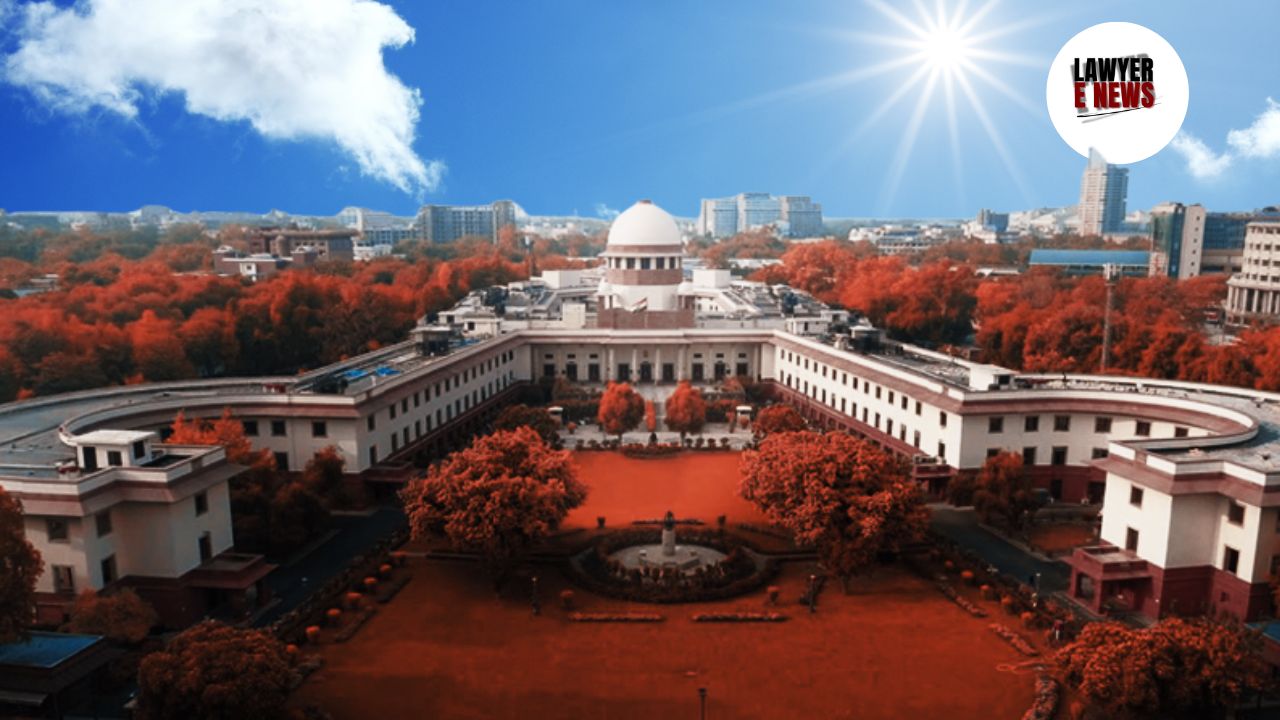-
by Admin
15 February 2026 2:16 AM



In a Latest Judgement, Supreme Court of India affirming the High Court’s decision that rejected claims of adverse possession and ruled in favor of the plaintiff’s right to recover possession of the disputed property. This ruling upheld the High Court’s reversal of the Trial Court and First Appellate Court, which had both ruled in favor of the defendants on the grounds of adverse possession.
The Supreme Court observed that the defendants failed to prove that they had acquired ownership of the disputed land by adverse possession. The Court noted that mere long possession does not automatically convert into adverse possession unless it is hostile and continuous for the statutory period of 12 years. The Court ruled:
"Once the plaintiff proved his title over the suit property, it is for the defendants to establish adverse possession. The defendants failed to provide sufficient evidence to prove that their possession was adverse to the plaintiff’s title for the prescriptive period".
The case concerned a suit filed by Rajendra Kumar Gupta for the recovery of possession of 7.60 acres of land located in Mowa Village, Raipur, which he had purchased through a registered sale deed in 1968. The defendants, Neelam Gupta & Ors., claimed to have acquired the property through adverse possession since 1968.
The defendants argued that the land was joint family property and that they had been in possession since 1968, thus claiming ownership through adverse possession. However, the plaintiff contended that the defendants were only in permissive possession of the property and that he remained the rightful owner under Bhumiswami rights.
The key legal issue revolved around the doctrine of adverse possession and whether the defendants had held the property openly, continuously, and in a hostile manner against the plaintiff’s title for more than 12 years. Both the Trial Court and First Appellate Court dismissed the plaintiff’s suit, finding that the defendants had perfected their title through adverse possession.
However, the High Court reversed these findings, holding that the defendants had only permissive possession of the land as tenants (Adhiyadar), and their possession could not be deemed hostile or adverse to the plaintiff's title. The High Court thus decreed the recovery of possession in favor of the plaintiff.
The Supreme Court upheld the High Court's decision, noting several key factors:
Permissive Possession: The defendants had previously admitted in applications filed before the Tahsildar in 1981 that they were cultivating the land as tenants (Adhiyadar) under the plaintiff. This admission negated their claim of adverse possession.
Contradictory Claims: The Court pointed out that the defendants’ claim of adverse possession contradicted their earlier statements that they were in permissive possession of the land. Such contradictory positions weakened their case for adverse possession.
No Proof of Adverse Possession: The Court ruled that the defendants had failed to establish the requisite elements of adverse possession, including "hostile" possession for the statutory period. The Court cited the principle that:
"Possession must be adverse in nature, continuous, open, and to the knowledge of the true owner. Merely being in possession does not convert it into adverse possession".
The Supreme Court concluded that the defendants had failed to prove their claim of adverse possession, and thus, the High Court's judgment ordering the recovery of possession was upheld. The appeal was dismissed, and the defendants were ordered to deliver vacant possession of the land to the plaintiff.
Date of Decision: October 14, 2024
Neelam Gupta & Ors. v. Rajendra Kumar Gupta & Anr.
